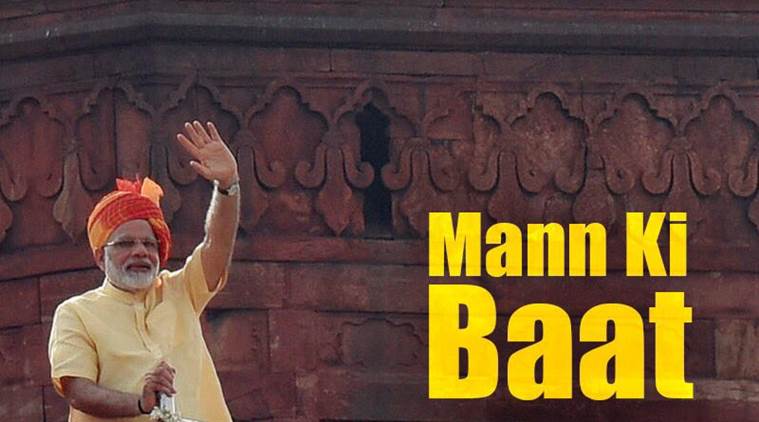 Modi referred to completion of one year of the implementation of Goods & Services Tax and said the credit “should go to the states”.
Modi referred to completion of one year of the implementation of Goods & Services Tax and said the credit “should go to the states”.
Emphasising social cohesion during his Mann ki Baat radio address, Prime Minister Narendra Modi on Sunday invoked Kabir, whose writings influenced the Bhakti movement, and said the poet appealed to “people to rise above divisions of religion and caste and make knowledge and wisdom the sole basis of recognition”.
“…The true saint is the one who recognises and understands the sufferings of others. Those who do not feel the pain of others are insensitive, uncompassionate. Kabir Das ji laid great emphasis on social cohesion. He was a thinker way ahead of his times. In those days, when the whole world was undergoing strife and degradation of moral values, he spread the message of peace and harmony. He worked towards uniting the populace, bridging their differences,” the Prime Minister said.
“…He appealed to the people to rise above divisions of religion and caste and make knowledge and wisdom the sole basis of recognition. His principles are relevant even after several centuries have gone by,” he added.
Invoking Guru Nanak, he said, “Guru Nanak Devji said that the service to the poor and the needy is service to God. Wherever he went, he took many initiatives for the welfare of the society. The establishment of a kitchen free of social discrimination where a person of any caste, sect, religion or community could eat or what we know as the langar system was initiated solely by Guru Nanak Dev Ji. The 550th Prakash Parv of Guru Nanak Dev Ji will be celebrated in 2019. I want all of us to join this great festival with enthusiasm and fervour,” Modi said.
Referring to founder of Bharatiya Jana Sangh Dr Syama Prasad Mookerjee, Modi said, “Yesterday was the death anniversary of Dr Syama Prasad Mookerjee…for Mookerjee, the most important thing was the integrity and unity of India — and for these, at the young age of 52, he also sacrificed his life…,” Modi said.
He also referred to completion of one year of the implementation of Goods & Services Tax and said the credit “should go to the states”. “‘One Nation, One Tax’ was the dream of the people of this country that has become a reality today. If I’ve to give credit to anyone for successful implementation of ‘One Nation One Tax reform’, then I credit the states of our nation. GST is a great example of cooperative federalism, where all the states decided to take a unanimous decision in the interest of the nation, and then such a huge tax reform could be implemented in the country.”